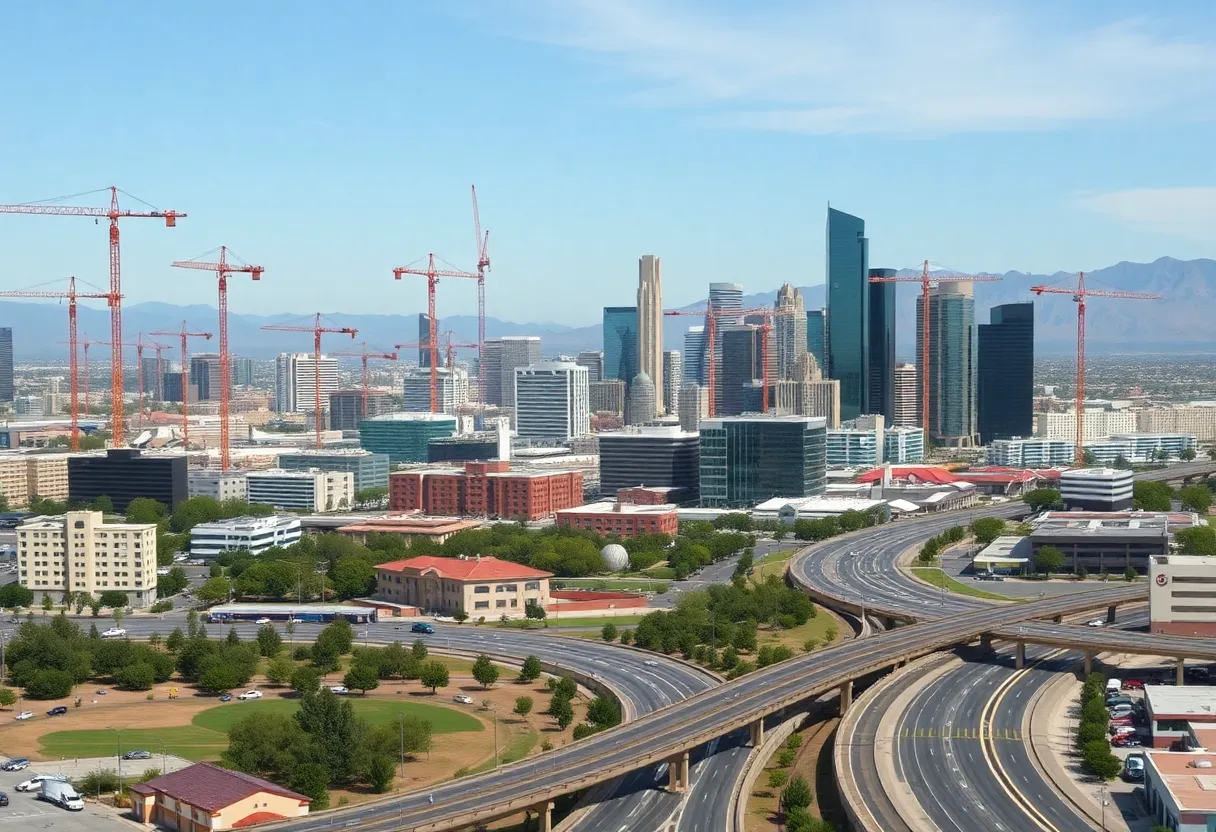News Summary
The Phoenix City Council has approved a major increase in impact fees to support the city’s infrastructure needs. This initiative is expected to generate approximately $1.6 billion over the next decade, primarily affecting northern Phoenix and Ahwatukee. While this decision aims to enhance public facilities as the population grows, it raises concerns about higher home prices and the potential impact on affordable housing. The fee structure will take effect in phases, reflecting the city’s commitment to sustainable development.
Phoenix City Council Gives Green Light to Major Impact Fee Hike for New Infrastructure
Big changes are afoot in Phoenix, as the City Council recently approved a significant increase in impact fees aimed at supporting the city’s growing infrastructure needs. After months of detailed hearings and extensive studies, the decision has been made, affecting a host of new developments aimed at improving public facilities across the area.
What’s All This Fuss About Impact Fees?
So, what are these impact fees? In simple terms, they are contributions that developers make to aid in financing public infrastructure. This includes crucial elements like water lines, sewer systems, fire and police stations, libraries, parks, and new streets. As the Phoenix population continues to swell, the city is taking steps to ensure that the infrastructure keeps pace.
North Phoenix and Ahwatukee Get a Boost
The adjustments primarily affect the northern parts of Phoenix and Ahwatukee, with plans to generate approximately $1.6 billion over the next decade for vital new infrastructure. This is good news for many residents looking forward to improved amenities, but it might come at a cost—homebuyers in the burgeoning 1,100-home Upper Canyon community in Ahwatukee should brace for higher home prices due to these increased fees.
A Long Time Coming
Although many view this as a step in the right direction, some community leaders have expressed concern about how long it has taken for many of these necessary projects to move forward. For instance, Michael Norton, President of the Rogers Ranch HOA, pointed out that certain park projects have faced delays of up to 40 years and will not be addressed with the new funding. Residents in Ahwatukee are also feeling the pinch, as complaints have arisen over the unfinished Desert Foothills Park, despite prior funding from impact fees.
Who Will Pay?
The fee hike is projected to take effect predominantly in Northern Phoenix, where existing infrastructure is relatively limited compared to more developed areas such as southwest Phoenix and parts of Ahwatukee. As this new fee structure rolls out, it aims to ensure that growth harmonizes with the financial demands of improving essential services. Deputy City Manager Alan Stephenson indicated that the increases would be most substantial in areas primed for significant development, particularly due to the upcoming construction of the Taiwan Semiconductor Manufacturing Company factory.
Addressing the Water Needs
In addition to roads and parks, the fees will also help fund major projects such as $12 million for a new fire station along Chandler Boulevard, targeting rapidly growing communities. Importantly, all new developments city-wide will bear the impact of these increases due to the necessity of building two new water treatment facilities, designed to convert treated wastewater back into drinking water—a proactive move in light of Arizona’s ongoing water crisis.
Balancing Costs and Affordable Housing
While investing in infrastructure is crucial, there’s growing concern that the increased fees may also hinder efforts to promote affordable housing. State law mandates that these fees apply to all new developments, including those intended for low-income families. This creates a poignant challenge in a city that already grapples with housing affordability.
Going Forward
As the new fee structures are phased in—a grace period of 24 months before increases for single-family homes kicks in after the first building permit is issued—they reflect the city’s commitment to responsible growth. Support from local organizations like the Arizona Chapter of General Contractors and Valley Partnership underscores a general acceptance of these adjustments as necessary given five years of rising costs.
All things considered, the City Council’s decision may indeed pave the way for a more robust infrastructure network that supports the community’s needs while also facilitating future growth. As Phoenix continues to evolve, it faces the challenge of ensuring its developments are sustainable, inclusive, and prepared for the future.
Deeper Dive: News & Info About This Topic
HERE Resources
Instagram Launches AI Initiative to Protect Teen Users
Arizona Retirees Face Economic Challenges Amid Turbulence
Arizona’s Wine and Spirits Industry Faces Tariff Challenges
Arizona Housing Market Faces Affordability Challenges and Growth Opportunities
Arizona Housing Market Faces Affordability Challenges and Growth Opportunities
Asian Technology Stocks Decline Amid U.S.-China Trade Tensions
Arizona’s Medicaid Program Set for Major Overhaul
NVIDIA to Manufacture AI Supercomputers in Arizona
Arizona House Approves Bill to Protect Axon Headquarters Development
Arizona Ranchers Navigate Tariffs and Trade Concerns
Additional Resources
- AZ Central: Phoenix Plans to Hike Impact Fees
- Google Search: impact fees phoenix
- AZ Family: Phoenix City Council Hikes Developer Fees
- Wikipedia: Impact Fee
- AZ Central: Home Building Costs in Phoenix to Soar
- Encyclopedia Britannica: Phoenix Arizona

Author: STAFF HERE PHOENIX WRITER
The PHOENIX STAFF WRITER represents the experienced team at HEREPhoenix.com, your go-to source for actionable local news and information in Phoenix, Maricopa County, and beyond. Specializing in "news you can use," we cover essential topics like product reviews for personal and business needs, local business directories, politics, real estate trends, neighborhood insights, and state news affecting the area—with deep expertise drawn from years of dedicated reporting and strong community input, including local press releases and business updates. We deliver top reporting on high-value events such as the Waste Management Phoenix Open, Cactus League Spring Training, and Arizona State Fair. Our coverage extends to key organizations like the Greater Phoenix Chamber of Commerce and Visit Phoenix, plus leading businesses in technology and healthcare that power the local economy such as Intel and Banner Health. As part of the broader HERE network, including HERETucson.com, we provide comprehensive, credible insights into Arizona's dynamic landscape.





